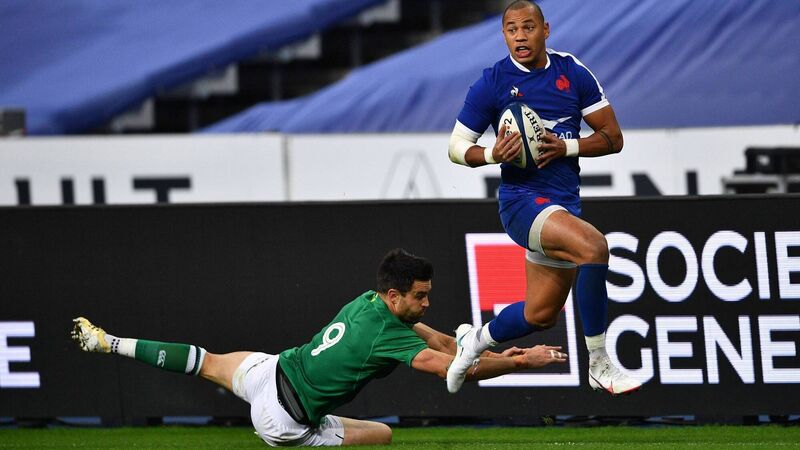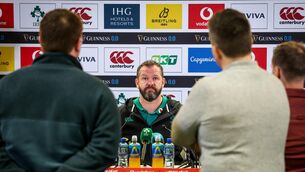Donal Lenihan: The new normal looks all too familiar for Ireland

France winger Gael Fickou dodges past the despairing tackle of Conor Murray of Ireland at the Stade de France. Photo by Anne-Christine Poujoulat/AFP via Getty Images
Nine months to the day since Wales launched the 2020 Six Nations tournament with a resounding 42-0 win over whipping boys Italy in Cardiff, England confirmed their status as Europe’s leading international side.










